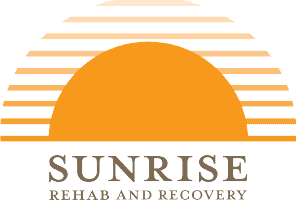Post-Traumatic Stress Disorder (PTSD) is a very serious mental health issue that affects millions of Americans each year. Whether rooted in a childhood trauma, domestic abuse, trauma on the job faced by first responders and healthcare workers, or trauma experienced by our brave service men and women, the symptoms can be debilitating.
PTSD often makes it difficult to maintain personal relationships, hold down regular employment, and deal with the normal stresses of daily life.
The Signs and Symptoms of PTSD
For many people, the signs of their PTSD go unnoticed for long periods of time. They think they are having a hard time adjusting, or are irritable – they find many ways to justify what they are experiencing. But, PTSD is a complex condition that can cause a range of symptoms that can change from day-to-day, and situation-to-situation. However, specialists have identified some symptoms that are specific to PTSD:
Intrusive or Unwanted Thoughts
Many individuals will experience intrusive thoughts and memories, called flashbacks, of specific traumatizing events that are experienced or witnessed. For those experiencing a flashback, it will feel like they are reliving the event and can cause re-traumatization.
Flashbacks may come in the form of nightmares or night terrors or unwanted thoughts that simply will not go away. All of these situations can make it difficult for those suffering from PTSD to sleep at night, or to concentrate on normal daily tasks at home or at work. They may also avoid situations, people, or places that are triggering, leading to isolation.
Avoidance of Trauma Reminders
Another hallmark of PTSD are behaviors that were established in order to avoid any reminders of the trauma. This can include avoiding certain places, situations, activities, or even certain people. Avoidance can also take the form of pretending that the trauma never happened, or refusing to talk about it.
Major Shifts in Your Moods or Thoughts
Those with PTSD often have major shifts in their moods, or mood swings, that come on suddenly and without warning. They may also have intense feelings of shame or guilt about events in their life, which may lead to feelings of unworthiness. These negative emotions often lead to severe depression or anxiety.
Inappropriate Outbursts
It is not uncommon for those with PTSD to have difficulty controlling their behavior or reactions to things. These feelings often result in intense, uncontrollable angry outbursts. They may also develop self-destructive behaviors, such as substance abuse or binge drinking, in order to cope with outbursts.
The Health Risks of PTSD
The risks connected to PTSD aren’t just mental and emotional ones; this condition can also take a toll on physical health as well. These physical effects are often just as difficult to deal with as the mental effects and also require treatment in order to be able to move past their PTSD symptoms. The most common health risks of PTSD include:
Cardiovascular Issues
PTSD has been shown to lead to chronic high blood pressure, which increases the risk of heart attacks and stroke.
Gastrointestinal Issues
Many of those with PTSD also suffer from chronic gastrointestinal issues like irritable bowel syndrome, which are thought to stem from changes in gut bacteria as a result of stress.
Chronic Pain
Chronic pain and PTSD frequently occur in tandem, with 35 percent of sufferers having been diagnosed with both conditions.
Traumatic Brain Injury
Even a mild concussion can cause lingering issues in the form of TBI side effects. TBI side effects can include: changes in mood and personality, chronic headaches, problems with memory and concentration
Substance Abuse
Those with PTSD are twice as likely to have a substance use disorder, which often leads to a serious addiction. This can result from prescription medications given to treat service-related pain, or from using substances to try and self-medicate their symptoms rather than seeking professional help.
Our Services
Giving Hope To Those In Need
A residential facility providing a recovery-oriented approach to high quality comprehensive treatment for those struggling with addiction.
